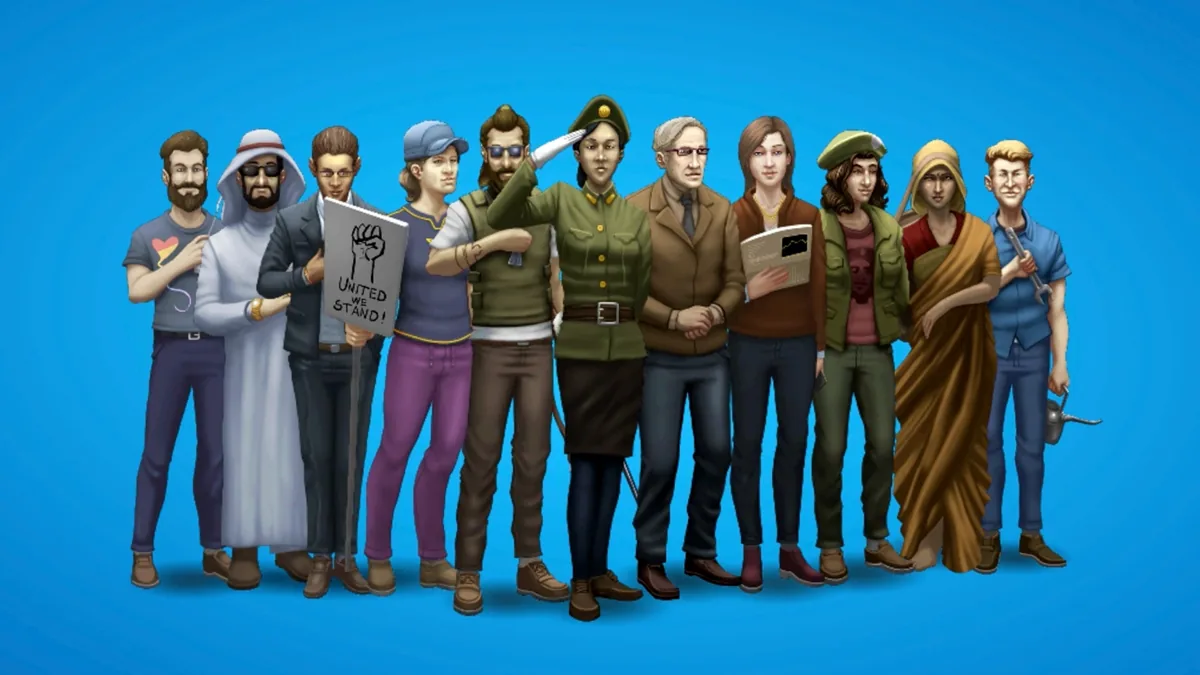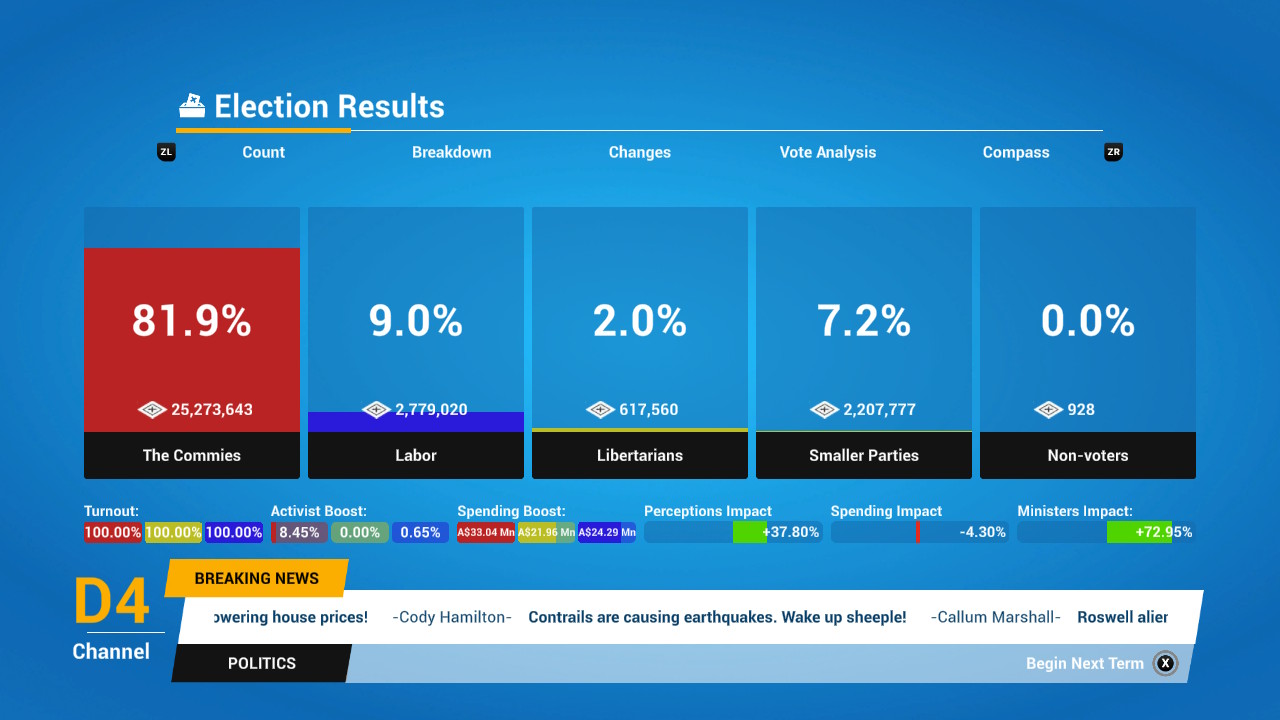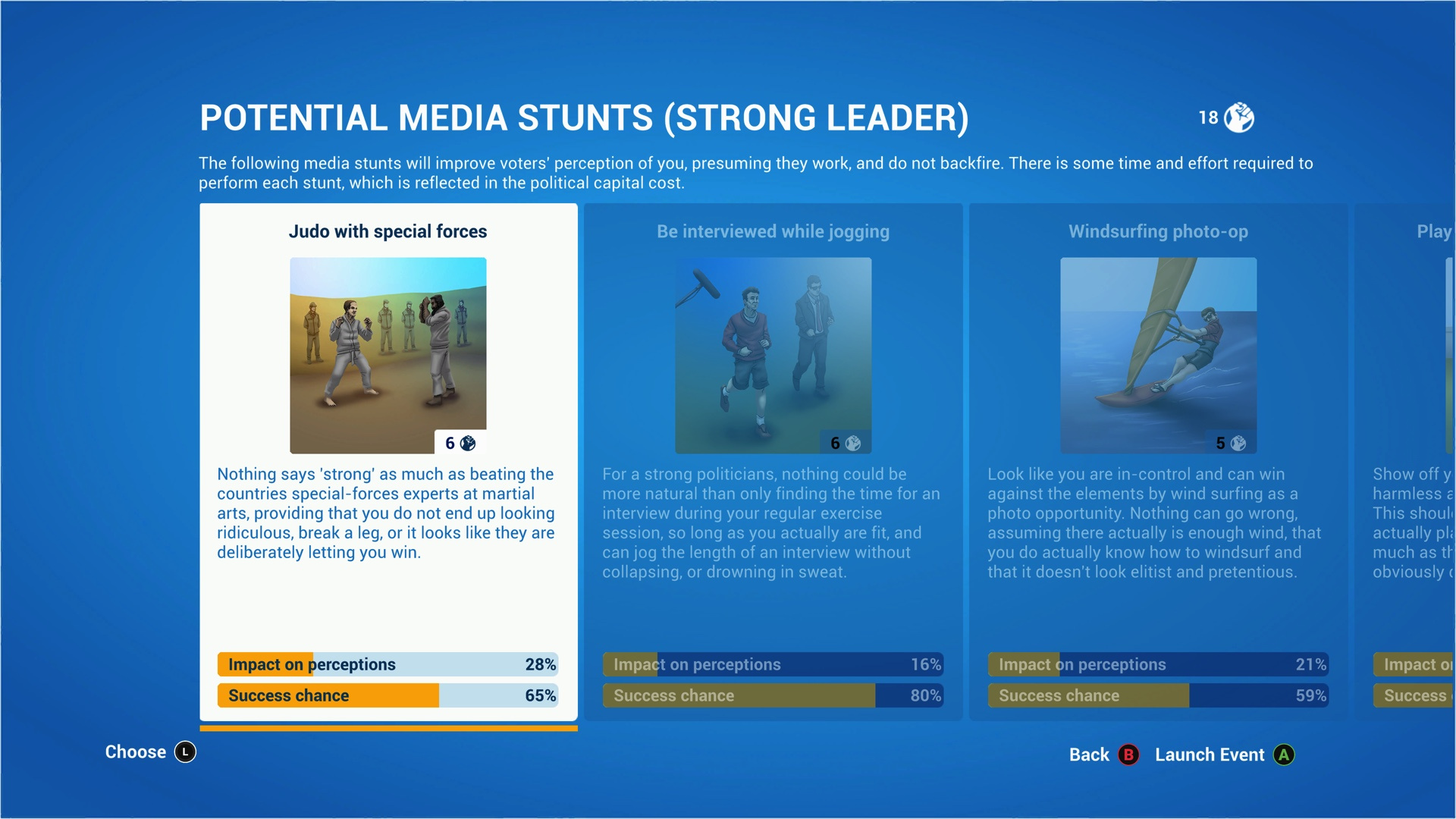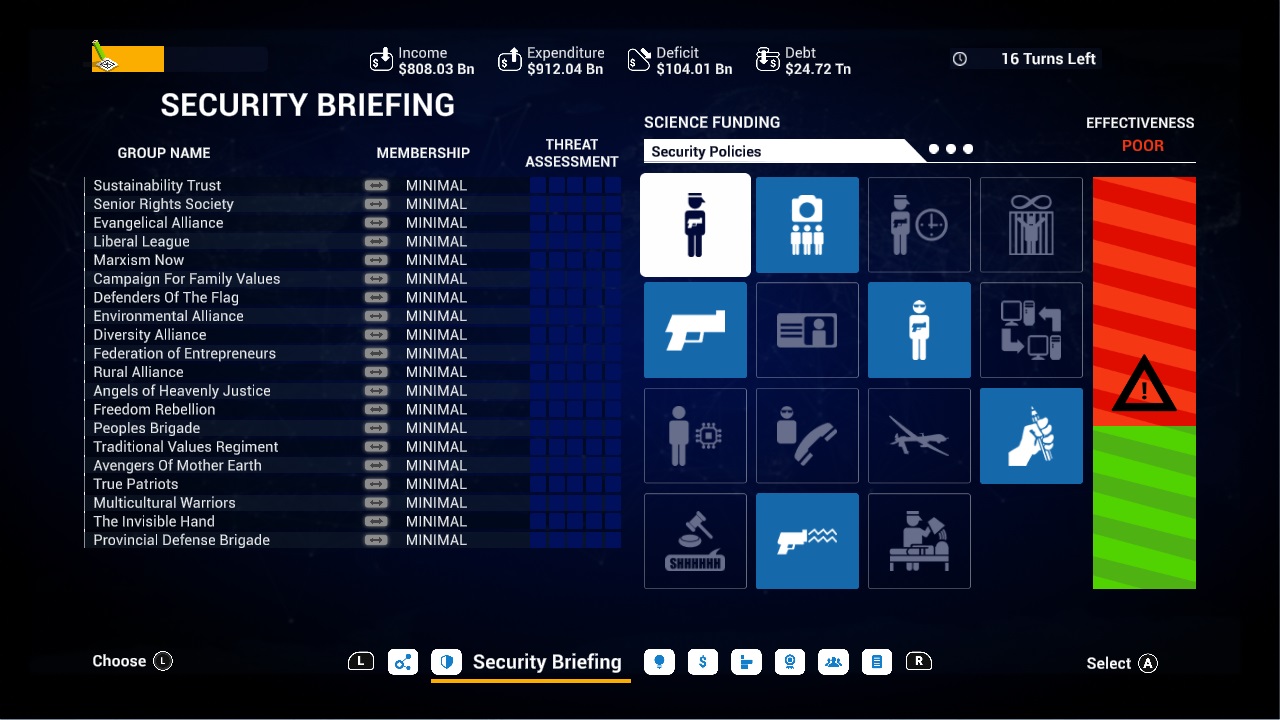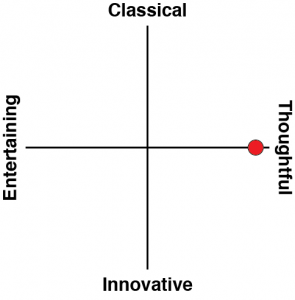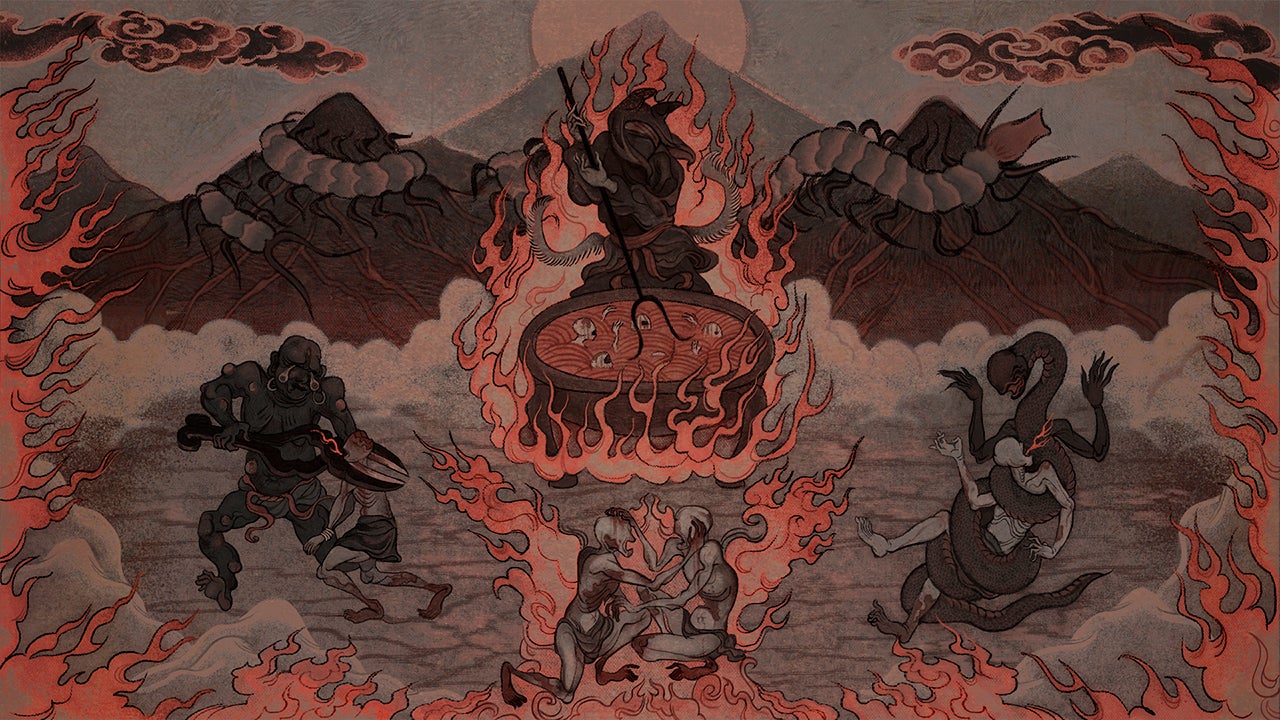I love Democracy 4. My first re-election campaign was a bit dicey, but some quality speeches on the campaign trail got me there. Despite the Australian Commies (AC) party running at an approval rate of only around 35% for much of the term, I was able to get it to 51% and scrape through a re-election.
I’m actually surprised I was struggling that much. I had a relatively modest term of activity, focusing largely on addressing some inequalities and my one big policy was the nationalisation of the energy grid. It was a softly-softly approach to achieving socialism… in fact, it was barely more than what a social democrat would do, really. The election was a wake-up call. I realised my error. If I was going to run a socialist government, I needed to actually go hard.
And so that’s exactly what I did in my second term, burning through political capital like no tomorrow. I hit the capitalists hard with taxes on their big profit businesses and personal yachts, while slashing sales tax to nothing. Sure that hit the GDP and taxation revenue for a quarter or two, but I began the recovery process there not through austerity, but through investing in advanced technology and encouraging enterprenurism. I trimmed back the deficit a bit by cutting military spending, and then enacted a broad suite of progressive social policies that really pissed the religious folk off. I lost one cabinet member to those decisions. They quit on me right at a critical point of the re-election campaign. But they were easy to replace with someone more aligned with my vision.
It got a little bit hairy for a bit. A couple of right-wing groups started organising and my security advisors told me that there were threats to my personal safety to monitor. I had to make a concession here in investing in the police to address rising crime rates. This worked, and had the added benefit of appeasing enough of the right wing that the security threat to me personally declined.
And then the next election rolled around. I secured 81.9% of the votes. The centrist party only got 9.0% and the Libertarians only got 2.0%. I am now on track to be a political legend for the socialist movement, though my third term is going to be tricky. Because I instituted some heavy tariffs to support local production (a rare move that makes both conservatives and socialists happy), Australia’s foreign reputation is not good, and I had cut military spending. Technically Australia’s now at risk of military action. Meanwhile, domestically there’s also a fairly steep deficit and the country is now flirting with having its credit rate downgraded.
But the people are happy and we’re on to the pathway to a more equitable nation. No one said that major transitions in society would be easy. I am pleased with what I am achieving
Democracy 4 is basically like Football Manager, only instead of running a team, you’re… well, you’re still running a team. It’s just a different kind of game that the team’s playing. You’ve been elected the leader of your nation (and there are a bunch to choose between, each with its own unique national quirks), and from there you need to enact a series of policies across the economy, trade, foreign relations, taxation and social policies to address the many challenges that every nation faces.
Each decision you make will be approved by some demographics, while hated by others. Tax corporations and you’ll piss off the capitalists. Tax luxury goods and you’ll piss off the wealthy. These are easy enough decisions to make, because who gives a crap if those groups are unhappy, but things become more complex when you need to make decisions that affect relatively harmless groups. Encourage the use of public transport, for example, and you’ll upset the motorists. Legalising sex work is a good and proper thing to do, but it’s a basic reality that it upsets the parent demographic. Putting restrictions on game hunting is popular with environmentalists, but it upsets the poor in equal measure. There are dozens upon dozens of demographics, policy settings, and percentage impacts to balance out. Pages upon pages of graphs and data to analyse. For a simulation of something as monumentally complex as a nation, Democracy 4 does a good job of providing just enough depth to make it seem authentic to the dynamics of politics while also abstracting it all into a playable format.
The stakes are high, too. On the one hand, you do need to consider re-election, and therefore make sure that your policies are not only good for the nation, but also popular. These things are not always in alignment. On the other hand, you also need to avoid upsetting any group too much. Most demographics do start to organise if they feel oppressed by your policies, and those organisations can become militant. Leave them unchecked for too long and the next thing you know you’ve been Shinzo Abe’d.
To enact policies you need to use political capital, which you earn with every “turn” (quarter year). The more ambitious policies require more political capital, and the really transformative ones are so expensive that you’ll only get to do one or perhaps two over the course of a term. There are plenty of small policies that you can fiddle with around the edges while “saving” for one of those transformative moves, however.
Despite being so intensely data and menu-driven, the developers have made it work nicely on console. The interface is clean and efficient, and it’s easy to navigate over to any key piece of information that you’re looking for. It’s not the most inspiring game to look at on the Switch, but if you find graphs aesthetically pleasing, then there’s plenty to look at here. And at the end of each term, the game places you on the political compass, based on the policies that you’ve enacted. It’s a handy way of seeing if you’d truly run the country in line with whatever political leader you admire (I do, being a little further down the path of Jeremy Corbyn’s wing of politics), and a fun visual to contemplate.
The appeal of Democracy 4 is pretty obvious – it’s for anyone who has an ideological interest in politics and is interested in seeing how their ideology would actually play out and how they would perform as a leader. It’s not perfect, of course, and certainly not training to become a real politician. It’s also not a game for someone who only has a pragmatic interest in politics. It’s really not fun trying to envision how you would actually lead a nation versus how you would aspire to if you could be completely uninhibited in power. But it does get you thinking about political policy and ideology and, if nothing else, if you play well you end up with a screenshot proving that you could achieve what Che Guevara could not. And that *is* fun. I’ve done that. You can all call me Dee Guevara now.
